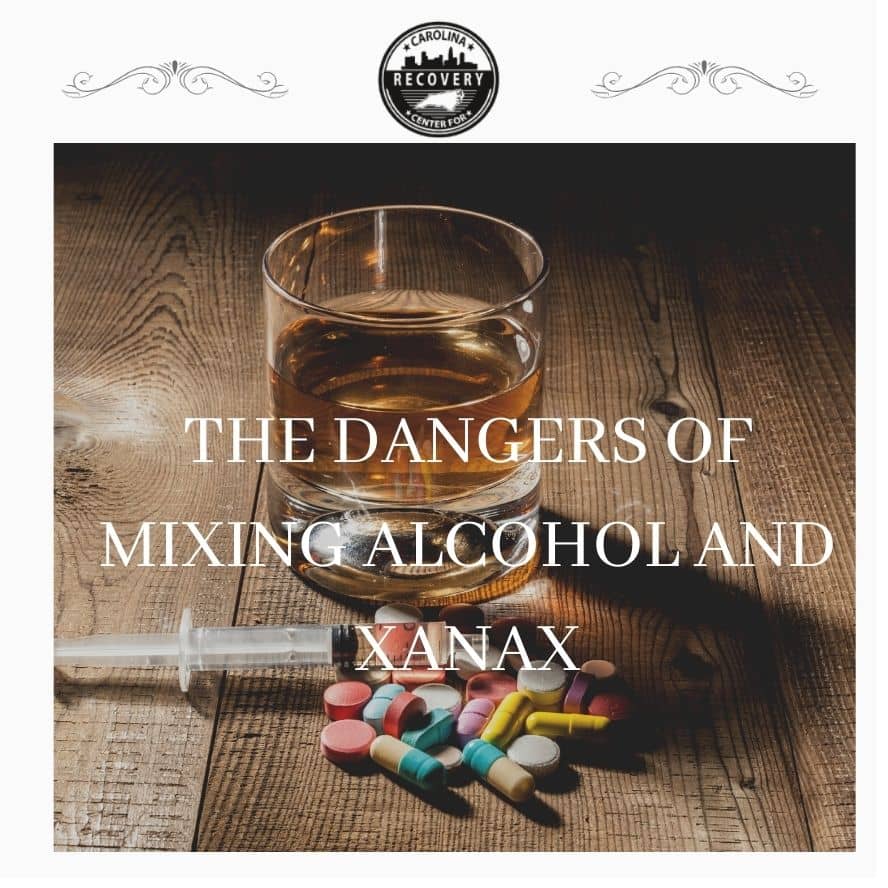The Dangers of Mixing Alcohol and Xanax

Medically Verified: 2/1/24
Medical Reviewer
Chief Editor

All of the information on this page has been reviewed and verified by a certified addiction professional.
Alcohol and Xanax are two substances that should never be used at the same time, however, this is also one of the most popular drug combinations. Using either substance by itself in excess is harmful, but mixing the two together creates a synergistic effect, increasing the effects and risks of both substances.
What is Xanax (Alprazolam)?
is the brand name for alprazolam, a benzodiazepine medication that is used to treat generalized anxiety disorder (GAD), insomnia, panic disorder, sleep disorders, and some types of seizures.[1] It can be legally obtained with a prescription, but many people who abuse Xanax purchase the drug illegally from friends or drug dealers.
Xanax is classified as a benzodiazepine. Benzodiazepines are considered tranquilizers or sedatives because they slow down activity in the central nervous system, producing calming, sedating effects. Benzodiazepines work by enhancing the binding of gamma-aminobutyric acid (GABA), a neurotransmitter that regulates the central nervous system and reduces excitability. In other words, benzodiazepines increase the effects of GABA, producing feelings of calmness, relaxation, sedation, and other addictive qualities.[2]
Other benzodiazepines that are similar to Xanax include:
- Klonopin (clonazepam)
- Ativan (lorazepam)
- Librium (chlordiazepoxide)
When taken in excess, Xanax can produce serious side effects, such as:[3]
- Memory loss
- Seizures
- Loss of coordination
- Confusion
- Agitation
- Loss of consciousness
Mixing Xanax with alcohol or other central nervous system depressants will intensify the effects of both substances and increase the risk of overdose.
Can You Drink Alcohol While Taking Xanax?
If your doctor prescribes you Xanax, he or she will likely advise against drinking alcohol while taking the medication. Even drinking in small amounts can increase the side effects of Xanax and put your health at risk, but binge drinking and heavy drinking are particularly dangerous. If you do drink, you should do so in moderation (one drink a day for women or two drinks a day for men).
Understanding the Xanax-Alcohol Interaction
Like Xanax, alcohol is also a central nervous system depressant. This means drinking alcohol slows down the activity of the central nervous system, producing a sedative-like effect.
Symptoms of alcohol intoxication include:
- Feelings of well-being and confidence
- Tranquility and relaxation
- Poor coordination
- Decreased attention span, memory, and judgment
- Slurred speech
- Reduced reaction time
- Sleepiness
- Dizziness
- Nausea and vomiting
These effects are produced because alcohol increases the effects of GABA–just like Xanax does. Alcohol abuse also affects dopamine and serotonin levels in the brain.[4] Ultimately, the mechanism of action for both alcohol and Xanax are very similar, which is why mixing the two substances creates enhanced effects.
Dangers of Mixing Alcohol and Xanax
People often take because they are seeking a high from both drugs. However, doing so is extremely dangerous, and this is one of the most deadly drug combinations.
When someone combines alcohol and Xanax, the liver makes metabolizing alcohol the priority, so the body will metabolize alcohol faster than it will Xanax. This can cause a dangerous build-up of Xanax in the system, increasing the risk of Xanax overdose. Similarly, Xanax is infamous for causing forgetfulness, so people who drink while taking Xanax may be unable to keep track of how much alcohol they have consumed. People may find themselves drinking much more than they normally would, further increasing the risk of overdose and death.
Overdose can be life-threatening, but it isn’t the only danger of mixing alcohol and Xanax. Other risks include:[5]
- Cognitive issues – Both alcohol and Xanax reduce cognitive abilities, leading to increased forgetfulness, memory loss, impulse control, attention span, problem-solving, and more. Long-term abuse of these two substances can lead to significant cognitive decline.
- Mood disturbances – Studies have found that people who use benzodiazepines and alcohol together regularly are more prone to mood swings, irritability, anger, and aggression than people who use either substance alone. Polysubstance abuse can also increase the risk of mood-related disorders like depression, anxiety, and bipolar disorder.
- Poor decision-making – Cognitive issues combined with poor judgment and intoxication can increase the risk of poor decision-making. Examples include driving while under the influence, committing crimes, getting into arguments, or having unprotected sexual interactions.
- Dependence and addiction – Abusing two substances like alcohol and Xanax can increase the risk of physical dependence and addiction.
- Health problems – Research shows that people who regularly mix alcohol and Xanax are at an increased risk for a variety of health issues, including liver damage, kidney damage, unusual side effects, psychosis, neurological disorders, cardiovascular disease, hypoxia, and more.
Find Help for Xanax and Alcohol Abuse Today
Addiction to multiple substances can be treated simultaneously at a drug and alcohol rehab center. At Carolina Center for Recover, we offer a complete substance abuse treatment program including medical detox services, treatment for co-occurring disorders, inpatient and outpatient rehab, and aftercare support.
If you or someone you love is struggling with Xanax and alcohol addiction, it’s time to seek help. Please contact us today to learn more about our North Carolina addiction treatment programs and how we can help you achieve sobriety.
References:
- https://www.accessdata.fda.gov/drugsatfda_docs/label/2016/018276s052lbl.pdf
- https://pubmed.ncbi.nlm.nih.gov/6147796/
- https://www.ncbi.nlm.nih.gov/books/NBK538165/
- https://www.scripps.edu/newsandviews/e_20020225/koob2.html
- https://www.ajmc.com/view/benzodiazepine-and-unhealthy-alcohol-use-among-adult-outpatients

